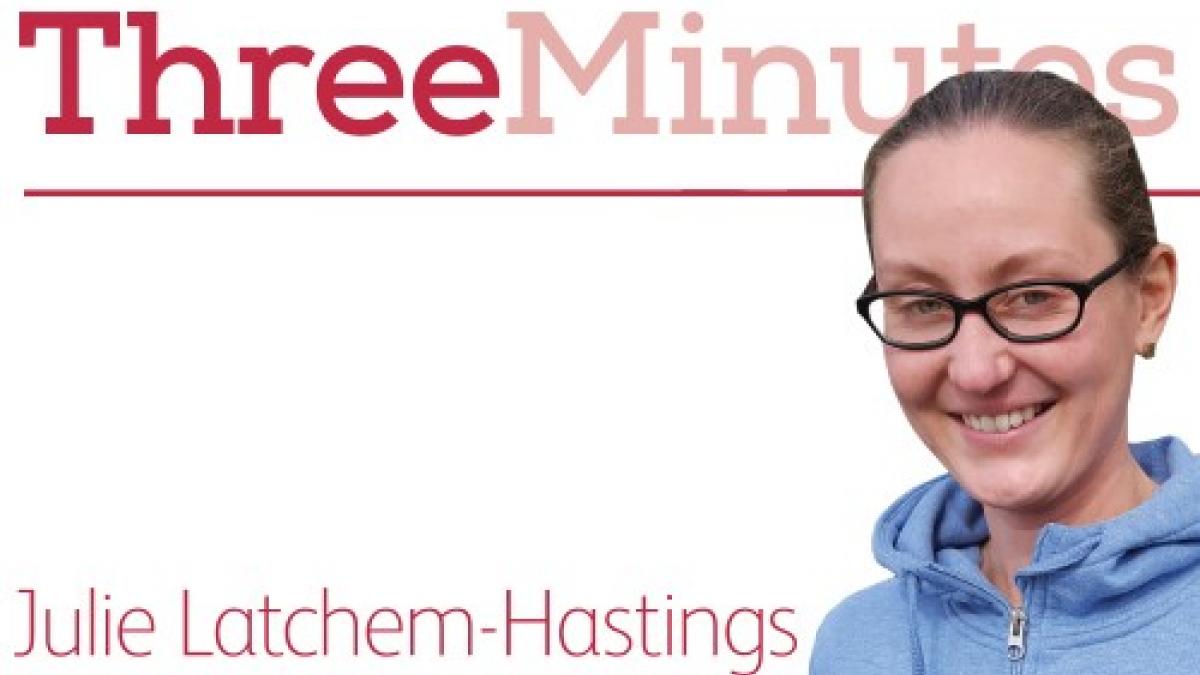For her PhD, Julie Latchem-Hastings explored how the future of people with severe brain injury is affected by rehab and the role of family and friends

Tell us about your research.
It has a single golden thread: the care and treatment of people with neurological conditions and those who care for and about them. My doctoral research explores how the futures of people with severe brain injuries are shaped during rehabilitation. In clinical practice I was troubled by the complexity of severe brain injury and the unique challenges which came by working with family members.
What is your most surprising finding?
Sadly, my research highlights that the futures of people with severe brain injury are imagined in a very limited way by health care staff – including allied health care professionals. This is the case even for patients who are rehabilitating well. On a more positive note, my research identifies and celebrates the extraordinary contribution that staff, such as cleaners, cooks, maintenance and administrative personnel, can make to the care and rehabilitation of brain-injured people.
What is the best rehab for people with brain injury?
Many of us spend our working lives attempting to answer that question. My research focuses on the day-to-day lives of people with the most severe injuries where ‘recovery’ to any semblance of their previous selves, or lives, is not possible. In these circumstances, best rehab requires attention to detail about people and interactions that have honesty, tenderness, attentiveness and humour. It means a combination of careful environmental and stimulatory management, efforts to reduce the impact of medical needs, the maximisation of functional abilities and social participation. This can be through creative formal and informal therapy conducted by people who care deeply and create a sense of community and togetherness.
Is a support network of family and friends important?
Family is central to the care and life of people with brain injuries, however mild or severe. In the case of profound impairments, where ‘recovery’ is impossible, my research suggests the future for people who have supportive family has the potential to be brighter and fuller compared to those who don’t.
What is the best end-of-life care for people who can’t communicate?
Best end-of-life care for people with profound neurological impairment starts with best- interest decision-making (see the Mental Capacity Act 2005) and the need to avoid futile treatments. A detailed exploration of end-of-life issues for people with a disorder of consciousness is available through our multimedia online learning resource for allied health professionals www.cdoc.org.uk
Do you support assisted dying?
I support the opportunity for people to be exposed to accurate presentation and discussion of what was proposed in the assisted dying bill. Having been the coordinator of a project exploring Christian perspectives of death and dying over the last year, we have brought hundreds of people together to explore the core arguments. We have another online resource to make these discussions accessible, which can also be found at www.cdoc.org.uk.
How do you relax?
I’m told that part of life after the PhD is re-learning how to relax. I recently married Dr Geraldine Hastings (now Latchem-Hastings), professional head of physiotherapy at Cardiff University, so free time has been enjoyably taken up by planning a day we both thought would never come. Thanks to all those who have campaigned in the past for equal rights, which are making a huge positive difference to our present. fl
- Dr Julie Latchem-Hastings is a social science researcher, Cardiff University
Author
Dr Julie Latchem-Hastings is a social science researcher, Cardiff UniversityNumber of subscribers: 2
